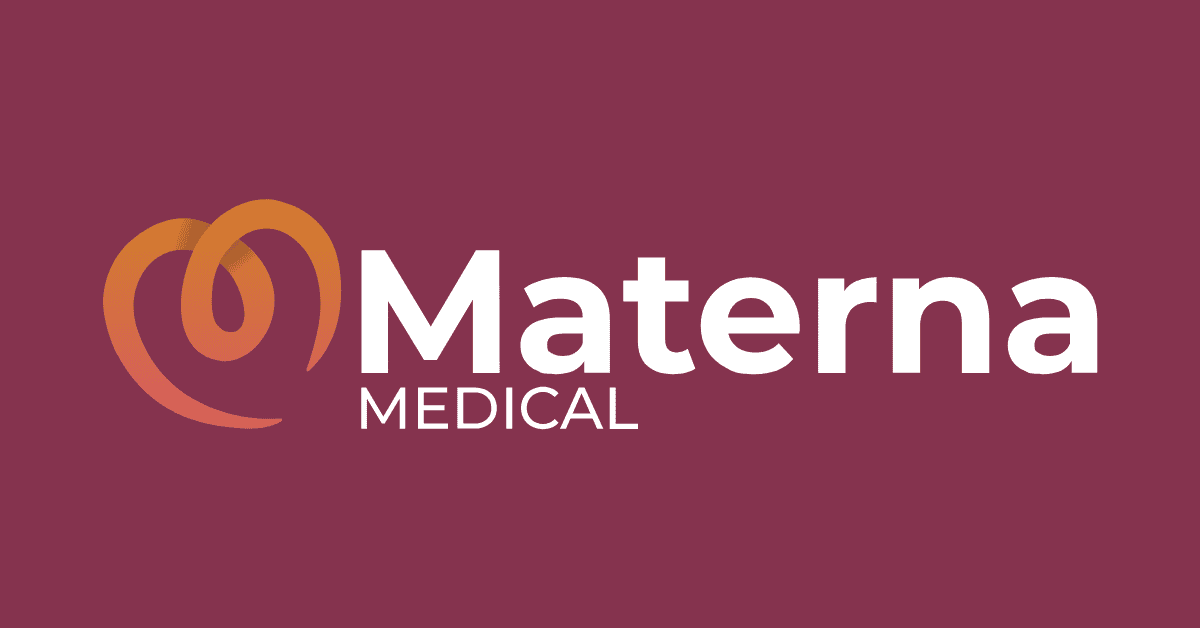Materna Medical Activates All US EASE Prep Pivotal Clinical Trial Sites
MOUNTAIN VIEW, CA / ACCESSWIRE / March 31, 2022 / Materna Medical, an OBGYN platform company dedicated to protecting women’s pelvic health, announced the completion of the activation of the fifteenth U.S. clinical study site participating in the pivotal EASE trial. This clinical study is evaluating the safety and effectiveness of the Prep device and will investigate whether use of the device can reduce pelvic floor damage for first-time mothers during labor and delivery.
A pilot study was published in the International Journal of Urogynecology by Dr. Francisco Orejuela and Baylor College of Medicine. In this study of 36 nulliparous women, there was a 60% reduction of pelvic floor muscle damage within the device group (n=27), compared to participants in the control group.
Pelvic floor disorders such as prolapse and incontinence are linked to pelvic muscle injuries sustained during childbirth.1 Up to 25% of women will experience pelvic floor disorders such as prolapse or incontinence2 and are at least 9X more likely to experience these symptoms if they have delivered a baby vaginally.3
The EASE trial has expanded upon the successful financing in 2021 of a $10M Series A2, led by Wavemaker 360 Health, a healthcare venture capital fund. The trial was initially funded by a $2.2M grant from the NIH, including biomechanical analyses from Dr. James Ashton-Miller and Dr. John Delancey’s Pelvic Floor Research Group at the University of Michigan.
Most of the fifteen clinical study sites include Principal Investigators that are members of the Society of Maternal Fetal Medicine, and some have Urogynecology Co-Principal Investigators. “SMFM leaders bring an incredible level of quality and insight to clinical research in Labor and Delivery, and the EASE Trial is thrilled to be sharing this innovation journey with leaders at these preeminent hospitals,” commented Tracy MacNeal, President & CEO of Materna Medical. “The Urogynecologist community has also joined this study in an exciting way, bringing together two important sectors of clinical leadership in the EASE trial.”
The EASE Trial is being led by Dr. Ronald Wapner, a Maternal Fetal Medicine Physician, Director of Reproductive Genetics at Columbia University and Chair of the Perinatal Research Consortium. The other study leaders include Dr. Francisco Orejuela, Associate Professor of OBGYN and Urogynecology at Baylor College of Medicine and Dr. Helai Hesham, Associate Professor of Obstetrics and Gynecology, Female Pelvic Medicine and Reconstructive Surgery, Urogynecology.
Dr. Ron Wapner commented that “the EASE trial shows the importance of the obstetrical community working together with urogynecologists to study, and hopefully improve, the impact of childbirth of women’s health in the long term.”
The EASE trial is an intersection of two important disciplines within women’s healthcare: obstetrics and urogynecology. While urogynecologists are typically the clinicians who treat women after they have sustained pelvic floor injuries during childbirth, the Materna device intervention takes place in Obstetrics during labor and delivery.
Dr. Helai Hesham remarked, “The EASE Trial reflects the vital relationship that exists between obstetrics and urogynecology within women’s health. The pelvic floor has always bound us as clinicians, but we are entering a new era where pelvic innovation and research aimed at bettering women’s lives enriches us and our patients’ lives.”
Dr. Francisco Orejuela noted, “The EASE trial provides a unique opportunity to study an innovative strategy for the reduction of pelvic floor injury at the time of vaginal delivery, and its negative consequences in the quality of life for women in the future.”
1 Bortolini MA, Drutz HP, Lovatsis D, Alarab M. Vaginal delivery and pelvic floor dysfunction: current evidence and implications for future research. International urogynecology journal. 2010 (8):1025-30.
2 Nygaard I, Barber MD, Burgio KL, et al. Prevalence of symptomatic pelvic floor disorders in US women. JAMA. 2008;300(11):1311-1316.
3 Quiroz LH, Muñoz A, Shippey SH, Gutman RE, Handa VL. Vaginal parity and pelvic organ prolapse. The Journal of reproductive medicine. 2010 Mar;55(3-4):93.
About Materna Medical
Materna Medical is a novel OBGYN platform company that defines a significant market in the most common pelvic conditions women face. Materna developed their proprietary pelvic floor technologies at Stanford University’s Biodesign program and continues as a Company-In-Residence at Fogarty Innovation in Silicon Valley. Materna’s first product, Milli, received 510(k) clearance in December 2021 to help relieve the symptoms of vaginismus and related dyspareunia (painful intercourse). Materna’s pipeline product, Prep, is an investigational device aiming to reduce pelvic floor injuries during childbirth.
For more information on Materna Medical, visit maternamedical.com.
For more information on Materna Prep’s clinical trial, visit https://easestudy.org/.
For interested patients, visit EASE: The Materna Prep Pivotal Study – Full Text View – ClinicalTrials.gov
